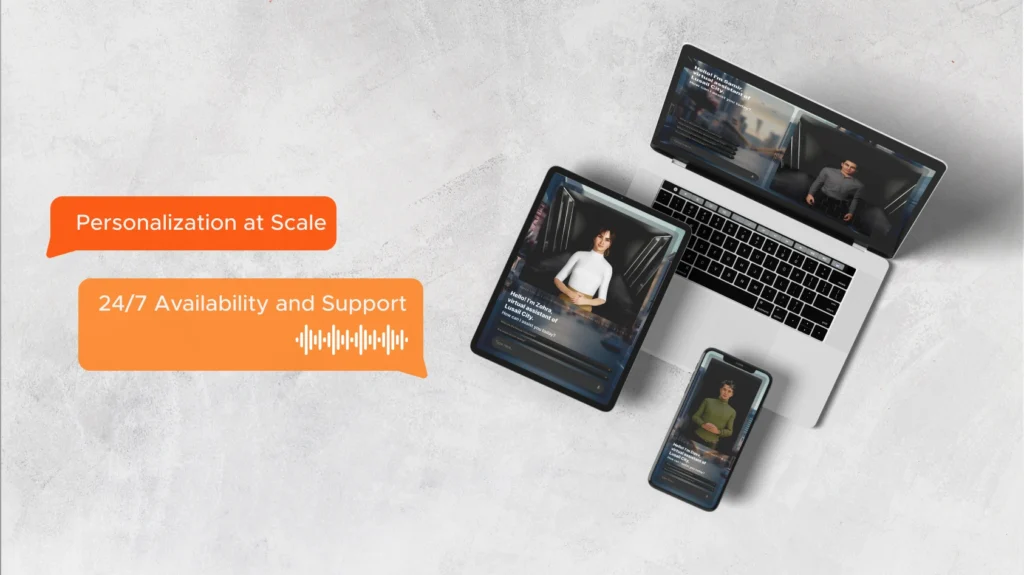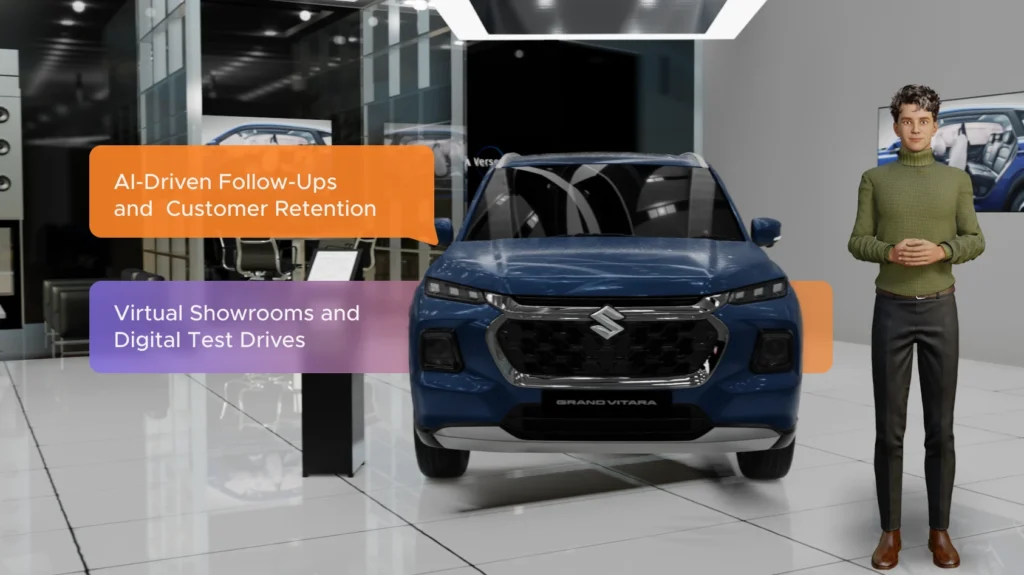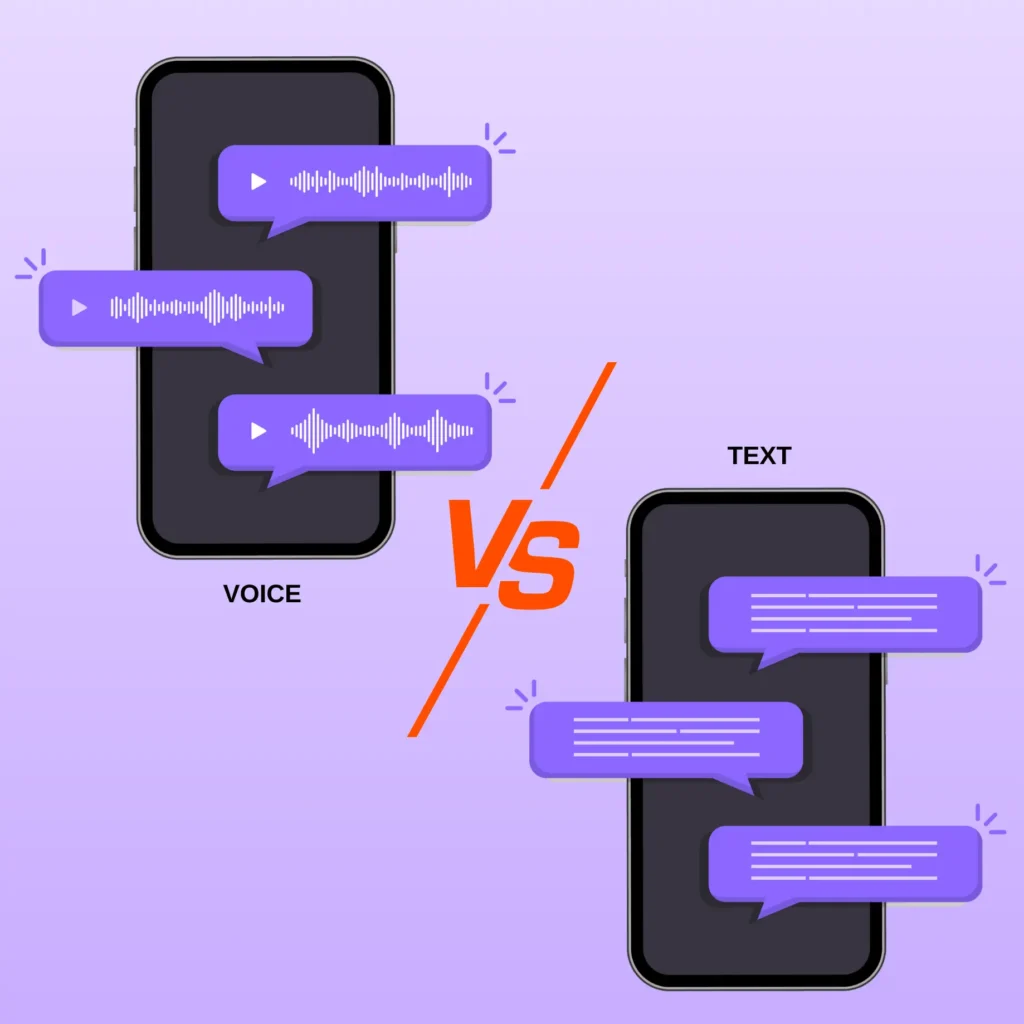In the rapidly evolving automotive industry, the integration of Artificial Intelligence (AI) is transforming automotive sales and customer service. AI agents are leading this revolution, enhancing every stage of the automotive journey—from the initial purchase to ongoing vehicle maintenance. For car owners, these technologies promise a personalized, efficient, and supportive interaction with their vehicles. This includes automotive AI solutions that address both customer and operational needs.
These advanced systems utilize machine learning algorithms, natural language processing, and real-time data to deliver exceptional customer service, predictive maintenance, and driver assistance. Their ability to analyze and respond to customer needs is setting new standards for the industry.
As the automotive sector continues to embrace AI, understanding its impact is essential. From improving the efficiency of service departments to enhancing the overall customer experience, AI agents are becoming indispensable tools for dealerships and manufacturers alike.This article explores the role of AI agents in modernizing car sales, their transformative effects on customer experiences, and showcases innovative case studies highlighting the power of AI in the automotive world.
The Role of AI Agents in Modernizing Car Sales

Enhancing Customer Interaction
A key aspect of AI agents in the automotive industry is their ability to significantly enhance customer interaction. These agents can engage in natural, fluid conversations with customers, providing immediate and relevant information about vehicles, accessories, and financial services. One prominent innovation is the use of an AI chatbot for automotive dealerships to provide seamless communication and immediate answers to queries.
Unlike traditional chatbots, AI-created sales agents maintain a human-like touch, addressing customer queries and concerns in a personalized and empathetic manner. For instance, AI agents can assist customers in finding the best car for their needs by analyzing their preferences, driving habits, and other relevant data. This personalized approach builds trust and satisfaction, as customers feel their specific needs are being understood and addressed. AI agents can manage the sales cycle from start to finish, automating routine tasks such as scheduling appointments and sending reminders. This ensures a seamless and efficient customer experience.
Streamlining Sales Processes
AI agents are instrumental in streamlining sales processes within car dealerships. By leveraging technologies like machine learning and natural language processing, these agents optimize various aspects of the sales cycle. For example, they can analyze market data to identify potential sales opportunities, such as fleets of connected vehicles nearing their maintenance or replacement dates.
This proactive approach allows sales teams to target customers with tailored offers, leading to increased sales and stronger partnerships. AI agents manage lead generation, initial platform personalization, and follow-ups, freeing human sales personnel to focus on more strategic and high-value tasks. This hybrid approach—combining the efficiency of AI with the personal touch of human interaction—enhances customer satisfaction while reducing the workload for dealerships. It also enables dealers to prioritize leads with the highest likelihood of conversion, driving more effective sales strategies.
Data-Driven Insights and Decision Making
AI agents play an essential role in providing data-driven insights that inform decision-making across the automotive industry. By analyzing real-time vehicle usage data, AI agents can inform design decisions, optimize vehicle performance, and develop new connected features that better meet customer needs.
This data-driven approach ensures development teams use the most relevant and up-to-date information to make key decisions, speeding up the development process and ensuring vehicles are designed with the latest customer preferences in mind.
AI agents analyze customer data gathered during the car-buying process to personalize marketing campaigns and optimize digital advertising. For instance, dealerships can use AI to predict which customers are most likely to buy and when, allowing them to target their marketing efforts more effectively. This predictive capability transforms how dealerships approach sales, enabling them to deliver tailored shopping experiences that align with customer preferences—similar to what is expected from platforms like Amazon.
Transformative Impacts of AI on Customer Experience

Personalization at Scale
The integration of AI in the automotive industry has enabled a level of personalization that was previously unattainable. AI-powered systems can analyze vast amounts of customer data, including browsing habits, past purchases, and engagement patterns, to create highly tailored experiences.
For instance, AI can help dealerships craft personalized marketing campaigns that resonate with individual buyers, significantly increasing engagement and conversion rates. This hyper-targeted approach ensures that customers receive relevant information and offers at the right moment, enhancing their overall satisfaction and loyalty to the brand.
AI-driven virtual assistants in vehicles can learn and adapt to individual driving habits and preferences. These systems can suggest maintenance reminders, optimized routes, and exclusive offers based on the driver’s behavior, making every interaction feel relevant and valuable. This level of personalization not only enhances customer satisfaction but also reinforces brand loyalty, as customers feel that their specific needs are being understood and addressed.
24/7 Availability and Support
AI agents have revolutionized the concept of customer support in the automotive industry by providing 24/7 availability. AI-powered chatbots and virtual assistants can handle a wide range of customer inquiries, from answering questions about vehicle models to scheduling test drives and even initiating the financing process. For instance, an AI-powered virtual sales assistant for automotive dealerships not only enhances sales engagement but also improves the customer’s journey through proactive assistance. This round-the-clock support ensures that customers can get the help they need at any time, without the need for human intervention.
AI can manage long-term lead follow-up, boosting re-engagement and improving close rates for longer sales cycles. This proactive approach to customer support not only enhances customer satisfaction but also frees up sales personnel to focus on more complex and high-value tasks. The seamless and natural interaction provided by AI virtual assistants minimizes distractions and ensures that customers receive immediate and personalized assistance, further enhancing their overall experience.
Innovative Case Studies: AI Agents in Action

Virtual Showrooms and Digital Test Drives
The integration of AI in the automotive industry has led to the creation of innovative virtual showrooms and digital test drive experiences. For instance, AI-powered virtual assistants can guide customers through detailed, immersive tours of vehicle models, highlighting features, specifications, and even allowing for virtual test drives. This technology has been particularly effective in expanding the reach of dealerships beyond their physical locations, enabling customers to explore and interact with vehicles from the comfort of their own homes.
A notable example is the use of AI-driven virtual showrooms by companies like Mercedes Benz. These virtual environments use AI to simulate real-world driving conditions, allowing customers to experience the vehicle’s performance, handling, and features in a highly realistic and engaging way. This not only enhances the customer’s decision-making process but also reduces the need for physical test drives, making the car-buying experience more efficient and convenient.
AI-Driven Follow-Ups and Customer Retention
AI agents are also being utilized to enhance customer retention through personalized follow-ups and nurturing of leads. By analyzing customer data, AI agents can identify potential buyers and send them tailored information, such as introductory offers, special promotions, or reminders about upcoming maintenance. Furthermore, advancements in AI for automotive customer service have made it possible for dealerships to respond to inquiries more efficiently and boost customer satisfaction.
A case study involving a car dealer group illustrates the effectiveness of this approach. The group used AI agents to analyze customer surveys, sales information, and social media posts to provide better advice and recommendations. As a result, they saw a 20% increase in sales and a 25% reduction in complaints.
The AI agents helped in identifying and nurturing high-quality leads, leading to improved customer satisfaction and loyalty.AI agents can gather valuable customer feedback at various stages of the buying journey, which helps automotive companies understand and address any bottlenecks in the sales process. This continuous feedback loop ensures that customer needs are met more effectively, leading to higher customer satisfaction and retention rates.
Conclusion
In conclusion, the integration of AI agents in the automotive industry is revolutionizing every aspect of the sector, from car sales and customer service to manufacturing and vehicle maintenance. These agents enhance customer interactions through personalized recommendations and 24/7 support, streamline sales processes, and provide data-driven insights that improve decision-making. Innovative applications such as virtual showrooms, AI-driven follow-ups, and predictive maintenance are setting new standards in customer experience and operational efficiency.
As the industry continues to evolve, it is important for automotive companies to embrace AI technology to stay competitive. By leveraging AI, businesses can optimize production, improve safety, and deliver highly customized and efficient services.The future of the automotive industry is undoubtedly tied to the advancements in AI, and those who adapt early will be at the forefront of this transformative journey.
Frequently Asked Questions
How are AI agents improving the customer experience in automotive sales and service?
AI agents in the automotive industry are enhancing the customer experience by providing 24/7 support, automating routine tasks such as scheduling appointments and answering FAQs, and offering personalized interactions and marketing. They improve response times through intelligent call routing and predictive maintenance, enable proactive engagement with customers, reduce wait times, and boost overall efficiency and satisfaction.
How can AI agents assist in the development and deployment of autonomous driving technologies?
AI agents play a critical role in autonomous driving technologies by processing vast amounts of data from sensors such as LIDAR, radar, and cameras to understand the environment. They use machine learning algorithms to make real-time decisions on steering, accelerating, and braking. Furthermore, they adapt to dynamic environments through predictive models and sensor fusion, enhancing both safety and efficiency.
What are some specific examples of how AI agents are automating workflows and enhancing efficiency in automotive dealerships?
AI agents in automotive dealerships are transforming workflows and boosting efficiency through the following key functions:
Appointment Scheduling: AI automates service appointment scheduling, reducing manual workload and improving customer convenience.
Lead Scoring and Prioritization: AI analyzes leads to identify high-quality prospects, allowing sales teams to focus on the most promising leads.
Inventory Management: AI optimizes vehicle inventory by automating the creation of vehicle listings, forecasting demand, and managing parts ordering and stocking.
Customer Communication: AI-powered chatbots and virtual assistants provide 24/7 support, answer queries, and send personalized messages and reminders.
Service Department Automation: AI automates service workflows, including diagnostic readings, repair order creation, and real-time data sharing, enhancing transparency and efficiency.



